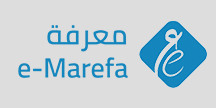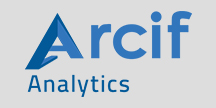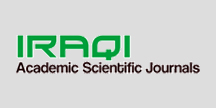Linguistic Strategies of Learning Persian Language to Kurdish Learners
DOI:
https://doi.org/10.21271/zjhs.27.2.18Keywords:
Direct and Indirect Learning Strategies, Cognitive and Metacognitive, Social, Emotional Memory.Abstract
The present study is entitled "Linguistic Strategies of Learning Persian Language to Kurdish Learners". It aims to examine the role of learning strategies (direct and indirect language strategies) in second language teaching and their relationship with second language teaching and learning plans.
The participants for this study consist of students of the Persian language department of both Salahaddin and Sulaymaniyah universities and students of the Kurdish language departments of the state universities of the Iraqi Kurdistan region. To conduct the study, a questionnaire of (50) questions was prepared in Kurdish Sorani dialect. A total number of completed questionnaires that the researchers received reached (474). Regarding the process of circulating the questionnaire, it was provided to the universities electronically, and the participants filled out voluntarily.
These participants were 127 males and 347 females. They were undergraduate students from first to fourth academic years. Importantly, the questionnaire was prepared by both researchers based on the teaching and learning plans, many years of experience in this field, the guidelines of Oxford questionnaire design and the learning instruction plans proposed by Omali and Chamut.
The results showed that linguistic strategies have a direct relation to second language learning. Their mother tongue of all the participants is Kurdish. Gender variable is one of the effective factors in the language learning in a way that the relationship between the memory related process learning strategies varies from female to male.
Moreover, based on the direct and indirect strategies of language learning, self-learning and the working environment of the learners have a significant impact on second language learning. As it can be seen in the questionnaire, there is a strong connection and coordination between the strategies.
References
-کتاب¬ها
- قرآن کریم
- -استاینبرگ. دنی. (١٣٩٨) درآمدی بر روانشناسی زبان. ترجمه¬ی ارسلان گلفام، چاپ دوازدهم، انتشارات سمت- تهران.
- باقری، مهری. (١٣٧٨) مقدمات زبان¬شناسی، مشاور مجموعە: د.حسن انوری، نشر قطرە، تهران.
- پیش¬قدم، رضا. سادات طباطبائیان، مریم. نادری. صفورا. (١٣٩٣) تحلیل انتقادی و کاربردی نظریه¬های فراگیری زبان اول: از پیدایش تا تکوین(ویرایست دوم). چاپ دوم، چاپ و انتشارات دانشگاه فردوسی مشهد.
-چامسکی، نوام. (١٣٩٢) درباره¬ی طبیعت و زبان، ترجمه¬ی محمد فرخی یکتا. چاپ اول، انتشارات روزبهان-تهران.
-گروم، نیکلاس و لیتل¬مور، جینت. (١٣٩٣) زبان¬شناسی کاربردی. ترجمه¬ی نگار داوری اردکانی و هاجر آقا ابراهیمی، چاپ اول، انتشارات علمی و فرهنگی، تهران.
- مشکوةالدینی، مهدی. (١٣٩٥)، توصیف و آموزش زبان فارسی. چاپ چهارم، انتشارات دانشگاه فردوسی- مشهد.
-نورمحمدی، محمود. (١٣٩٠)گسترش مهارتهای آموزش زبان دوم. چاپ پنجم، انتشارات راهنما- تهران.
-یارمحمدی، لطف¬¬¬اللە. (١٣٩٣)ارتباطات از منظر گفتمان¬شناسی انتقادی. چاپ سوم، انتشارات هرمس- تهران.
-مقالات
- پژوهش¬نامه¬ی آموزش زبان فارسی به غیرفارسی¬زبانان، پاییز١٣٩١، سال اول، شماره¬ی اول. رابطه¬ی جنسیت و به کارگیری راهبردهای یادگیری زبان فارسی به عنوان زبان دوم، امیررضا وکیلی¬فرد، شراره خالقی¬زاده.
- فصل¬نامه¬ی جستارهای زبانی، تابستان ١٣٩٣، ش٢، پیاپی ١٨. راهبردهای یادگیری زبان فارسی، بررسی ارتباط بین ملیت با به کارگیری راهبردها در میان فارسی¬آموزان غیر ایرانی، امیررضا وکیلی¬فرد، شراره خالقی¬زاده.
-سایت
https://fa.wikipedia.org/wiki/%D8%B1%D8%A7%D9%87%D8%A8%D8%B1%D8%AF
Downloads
Published
How to Cite
Issue
Section
License
Copyright (c) 2023 Zahra Ahmad Qadir, Layla Ali Rahman

This work is licensed under a Creative Commons Attribution-NonCommercial-ShareAlike 4.0 International License.
Except where otherwise noted, content on this site is licenced
under a Creative Commons Attribution License 4.0 (CC BY- 4.0)










